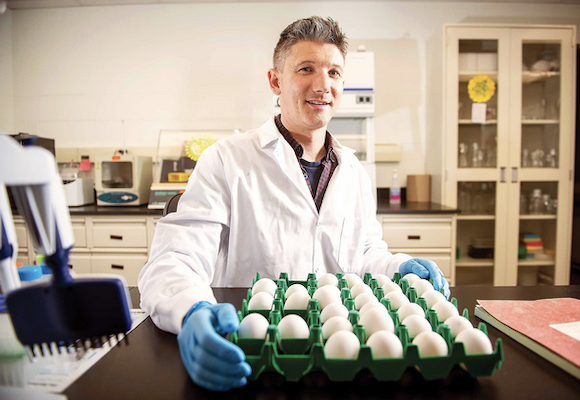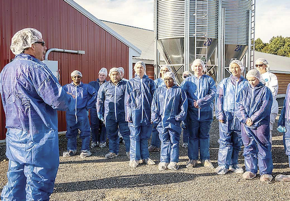Grand Challenges: Modeling the Evolution of Avian Influenza Viruses
Grant Type: Team Project Grant
Topics: Global Health, Pandemic Preparedness
Colleges Represented: AGNR, CMNS
Solutions to Bird Flu Hatched
April 30, 2025
Maryland Researchers Study the Science Behind Bird Flu and How to Stop Outbreaks (WJZ-TV)
March 12, 2025
Grand Challenges Team Models the Evolution of Avian Influenza Viruses to Better Understand How New Strains Emerge
September 26, 2024
Preventing A Poultry Pandemic
July 1, 2023
ANSC Undergraduate Declan Kehlbeck Awarded Scholarships for Work Related to Avian Viruses
March 17, 2023
Summary:
Wild water birds are the main carriers of “bird flu,” which has jumped species into poultry, claiming the lives of more than 58 million birds in the USA in 2022-23, and people, where it presents a risk of becoming another pandemic. Although we think of the flu as being a respiratory infection, in birds the virus can infect both the respiratory tract and the gut, and these organs represent key sites where new flu strains evolve and emerge. However, our understanding of how flu evolves in the avian respiratory tract and gut is lacking. In this project, the team will grow miniature airways and intestines from chickens and ducks in the laboratory (so called primary culture models and “organoids”) and study how bird flu replicates and evolves in them, to mimic what happens in the birds. This will allow the team to answer important questions about how new flu strains emerge, and the barriers to species jumping, in a controlled laboratory setting, without the need for infecting animals.



Team Members:
 PI: Andrew Broadbent (AGNR), Assistant Professor, Animal and Avian Sciences |
 Younggeon Jin (AGNR), Assistant Professor, Animal and Avian Sciences |
 Margaret Scull (CMNS), Assistant Professor, Cell Biology and Molecular Genetics |

